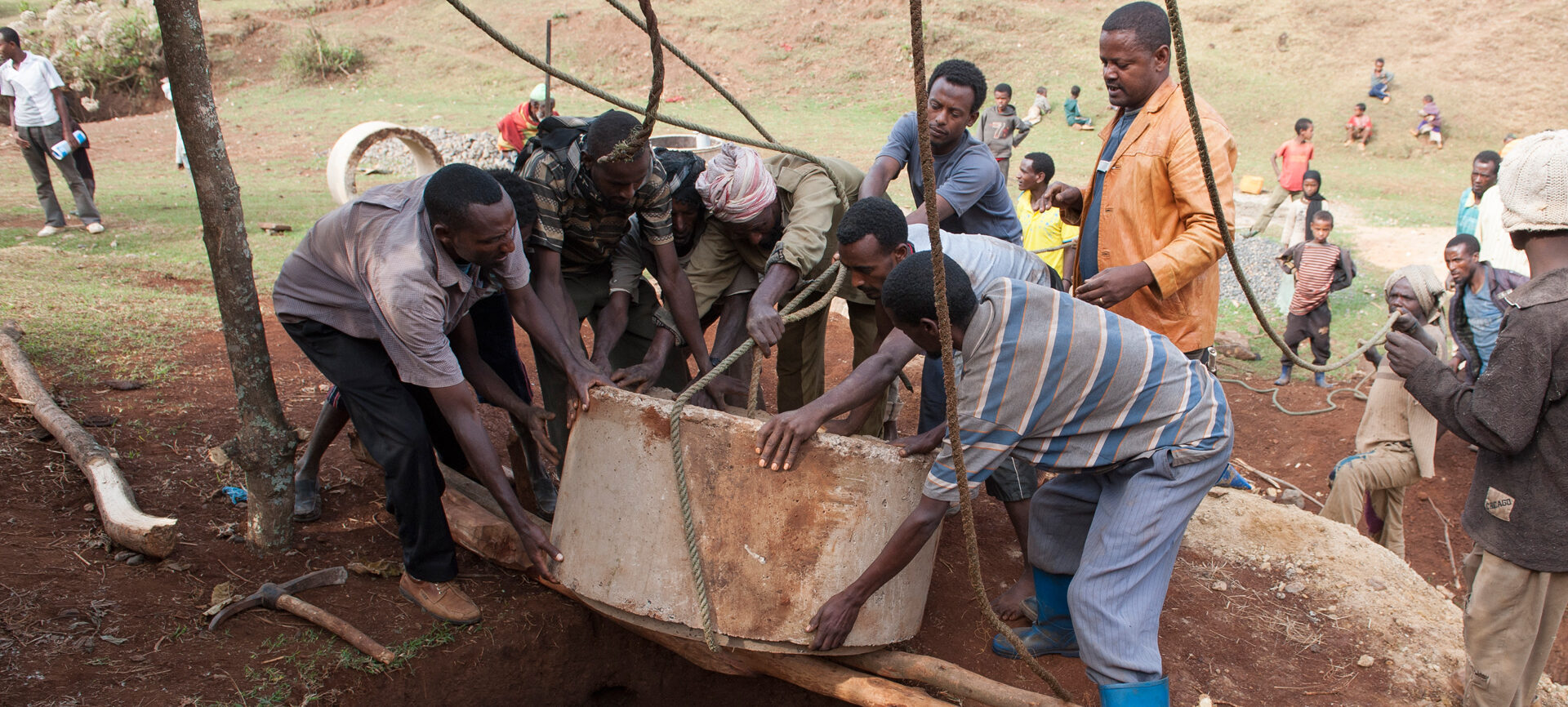
Our focal areas
Integrated rural development
Whether it is farming, water or healthcare provision, education or boosting the income of people in Ethiopia – the fruits of our help should continue to grow without our support. Integrated project work and the participation of the local people make the aid sustainable.
Sustainable land management and nutrition
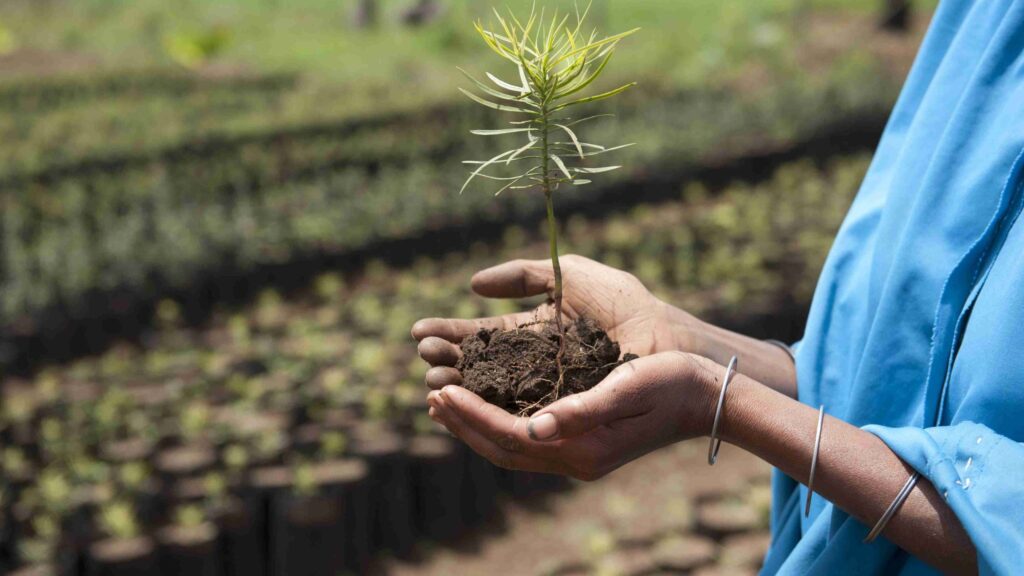
The existence of over 70% of Ethiopians is based on farming. But the produce of the fields and cattle is often hardly sufficient to feed their own family. We provide support to the farming families by optimizing their farming and livestock production. For this purpose we supply the resources such as better seed, simple irrigation systems or hens that lay more eggs. In addition, together with the farmers we promote projects to prevent the erosion and depletion of the soil. In this way the natural resources are protected and arable farming is sustainable.
Water, hygiene and sanitation
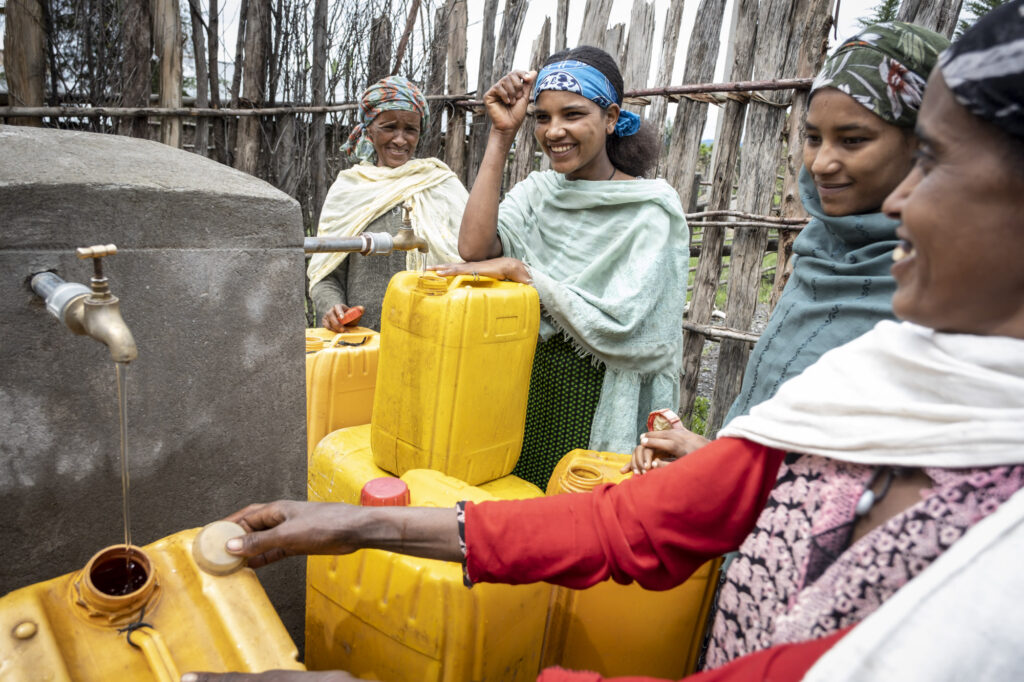
Lack of drinking water is a fact of life for four out of ten people in rural Ethiopia. Wells are rare, springs and water holes are often highly contaminated. Many people, mostly women and girls, have to walk for several hours to the nearest water point. Together with the local population we build hand dug wells, spring developments, water reservoirs for rainwater or complete water supply systems at centrally accessible places. The systems are cleaned and maintained by the community members.
Education
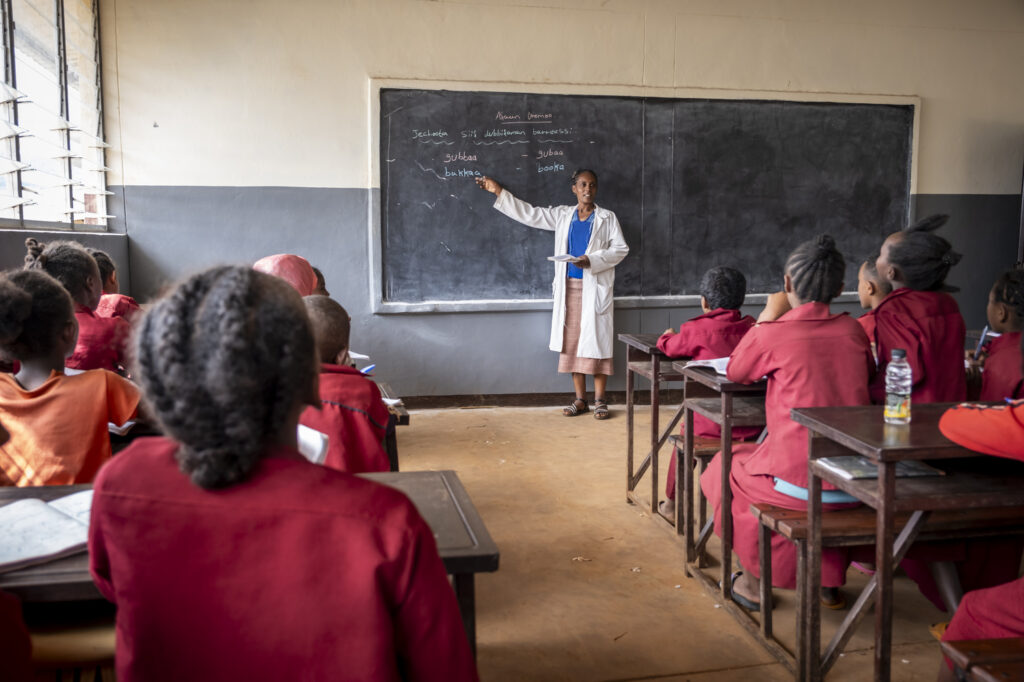
Still five out of ten people in Ethiopia are still unable read or write. There are often no nearby school facilities, and if there are, they are usually no more than a shack built of wood and mud. Often the children have no time to go to school, because they have to help their parents by working on the smallholding. Our activities in the field of education are diverse and embrace all age groups: they extend from new school buildings and equipment with furniture and teaching materials to the construction of vocational schools (TVETs) and adult education.
Health
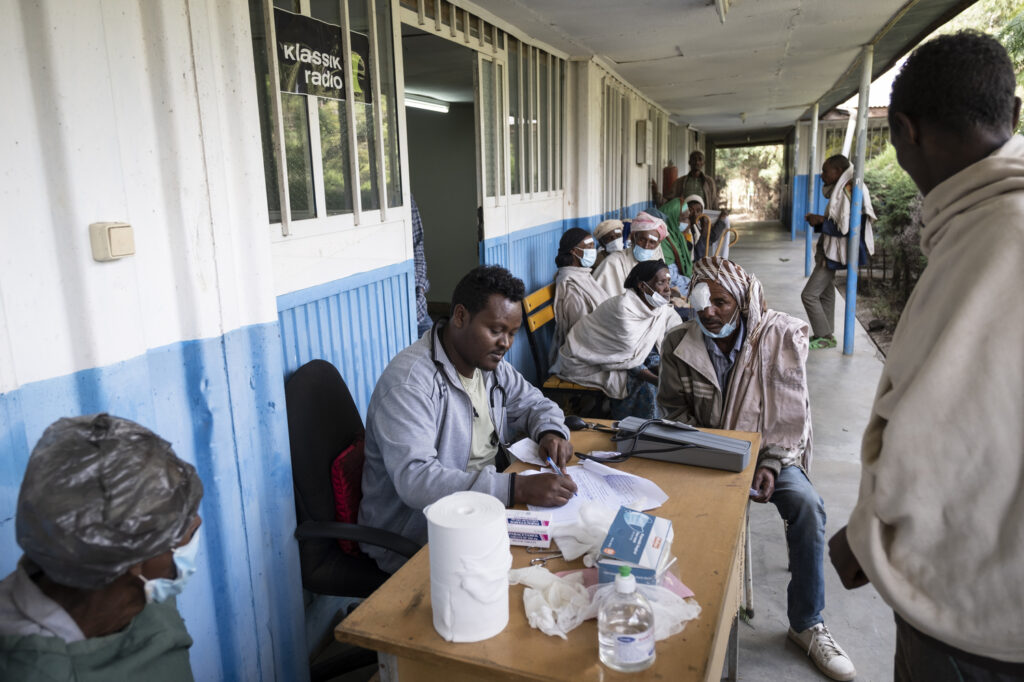
The biggest health problems for the rural population of Ethiopia are diarrhoeal diseases, malaria, parasites and infections. Their life expectation is only 63 years – about 20 years less than in Europe – and every 20th child dies before its fifth birthday. Menschen für Menschen equips health centres in an attempt to improve medical care, trains the nursing staff and initiates awareness-raising campaigns for the promotion of health.
Human development and income
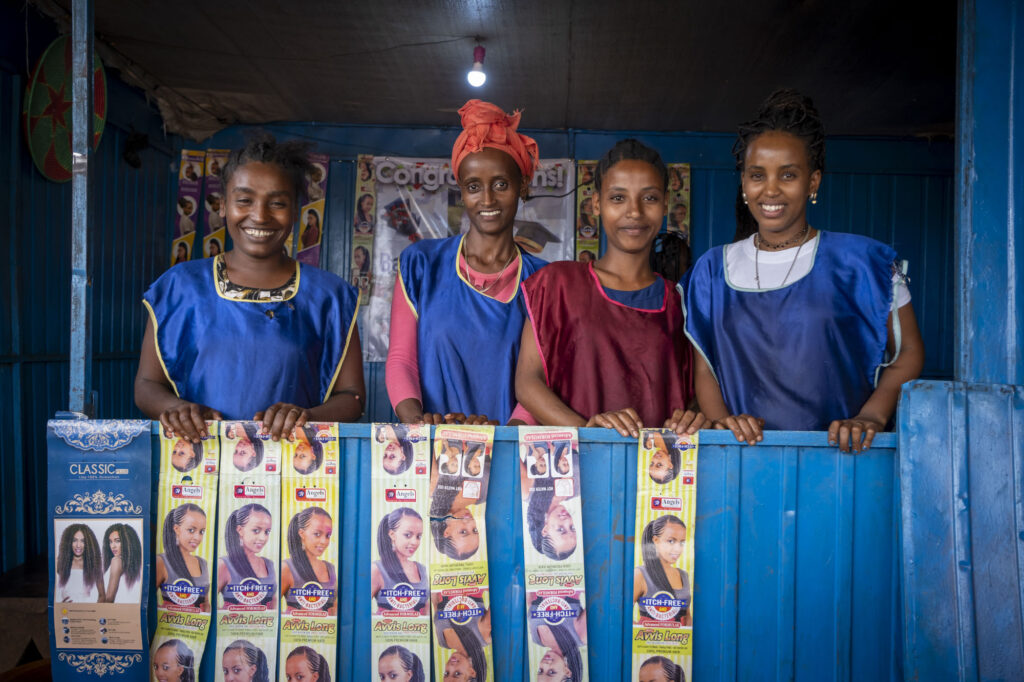
Over 70% of Ethiopia’s population live off the land – mostly from hand to mouth. The existing arable land has long since become insufficient for all. There is a lack of income alternatives. Many people feel compelled to leave their homeland. Menschen für Menschen is fighting against the causes of migration by offering farming families opportunities for development. Handicraft courses and microcredits open up new opportunities, generate additional income and ensure the livelihood of many families.